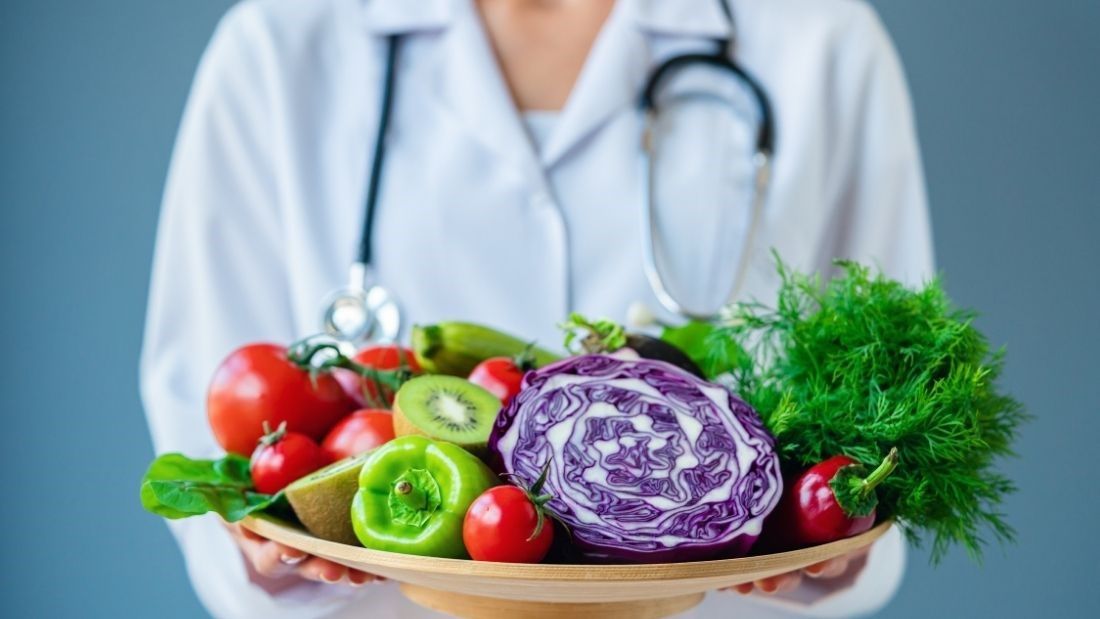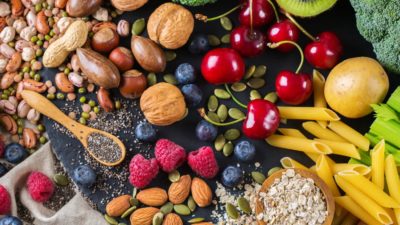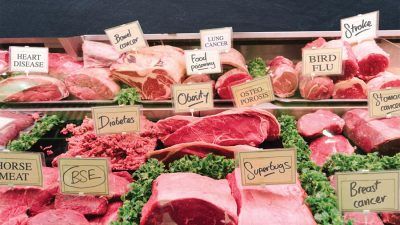Vegetarians have 14 per cent lower cancer risk than meat-eaters

This study, co-funded by the World Cancer Research Fund (WCRF), found that: “being a low meat-eater, fish-eater, or vegetarian was associated with a lower risk of all cancer sites when compared to regular meat-eaters. We also found a lower risk of colorectal [bowel] cancer amongst low meat-eaters, a lower risk of postmenopausal breast cancer risk in vegetarian women, and a lower risk of prostate cancer amongst vegetarian men.”
The team of researchers, from the University of Oxford, analysed data from the UK Biobank study on almost half a million British adults. They were grouped as regular meat-eaters (247,571), low meat-eaters (205,385), fish-eaters (10,696) and vegetarians (8685) The vegetarian group included 466 vegans. All participants were free from cancer at the start and 54,961 cancer cases were diagnosed during the 11 years during which they were followed.
They found that compared with regular meat-eaters (eating meat more than five times a week), those consuming small amounts of meat had a two per cent lower risk of developing cancer. Fish-eaters had a 10 per cent lower risk but vegetarians were 14 per cent less likely to develop cancer.
They also found a nine per cent lower risk of bowel cancer amongst low meat-eaters, an 18 per cent lower risk of postmenopausal breast cancer risk in vegetarian women and a 31 per cent lower risk of prostate cancer amongst vegetarian men. The lower risk of postmenopausal breast cancer in vegetarians, they say, may be largely a result of vegetarians having a lower BMI than meat-eaters, with possibly some further impact due to vegetarian women having lower IGF-1 levels.
The growth hormone IGF-1 has been linked to an increased risk of certain cancers and studies have found lower levels in vegans. The authors say that the lower levels of IGF-1 in vegetarians in this study may have been influenced by the inclusion of vegans in this group. There are many other possible reasons for a lower risk of cancer among people who don’t eat meat, including reduced exposure to carcinogens in meat and the increased consumption of anti-cancer compounds in plant foods.
These results confirm WCRF’s longstanding advice that people should limit their intake of red and processed meat and eat more wholegrains, vegetables, fruit and pulses. This finding falls in line with previous research showing how UK vegetarians have an 11 per cent lower risk of cancer and vegans 19 per cent lower. The US Adventist Health Study 2 had similar results; vegetarians had an eight per cent lower risk and vegans 16 per cent lower. Vegan women had 34 per cent fewer female-specific cancers.
More than 1,000 people are diagnosed with cancer every day in the UK. However, around 40 per cent of cancers could be prevented by dietary and lifestyle changes. The WCRF says: “A healthy diet for cancer prevention consists of a wide variety of fruit, vegetables, wholegrains, and very little junk food including sugary drinks.” They recommend limiting red meat and avoiding processed meat.






